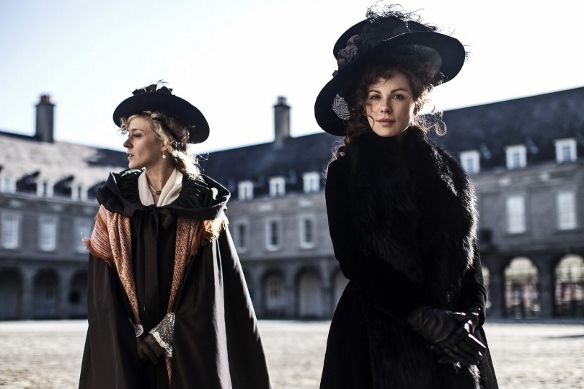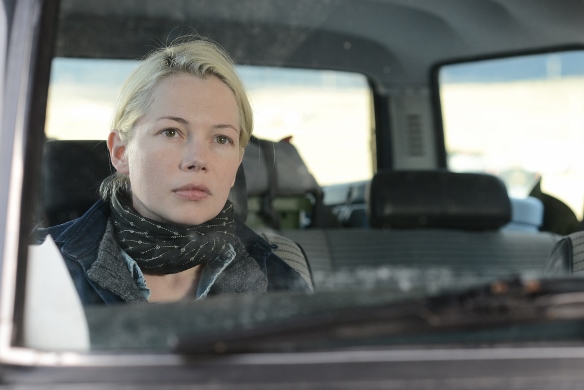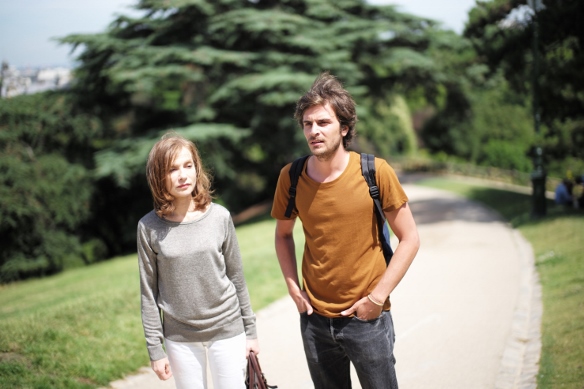The Jerusalem Film Festival is an Israeli summer tradition, cinephiles will be making the pilgrimage to sojourn at the Jerusalem Cinematheque this year from July 7 – 17, 2016, spending the long summer days and well into the night, for a first look at new Israeli films (read more about Israeli films here), the best of this year’s international features and documentaries, as well as the rare opportunity to see classics on the big screen. For those of us who write about film, there is another favorite tradition: preview day. This is when we receive the sacred text of the festival – the catalogue, which then becomes our constant companion for the next couple of weeks, as we read, make our choices, re-read and change our choices, trying to figure out how we can possibly see everything. We can’t. There are just so many excellent possibilities…
How then does one navigate the festival? Accept with grace the inevitability of missing some films, rely on background information, recommendations, and the all-important catalogue descriptions, and the ultimate imperative: be open to serendipity.

Recommendations:
Love and Friendship, Whit Stillman’s latest film, is a high-velocity hilarious romp with a beguiling demeanor, trenchant wit, and vitriolic social critique. The film is an adaptation of Lady Susan, a little known epistolary novella by Jane Austen (1775 – 1817), written in the mid-1790s, and published posthumously in 1871. To this viewer’s delight, Love and Friendship boasts a protagonist – Lady Susan, who is wicked to the core!
Stillman (Metropolitan, The Last Days of Disco, The Cosmopolitans), is, much like Austen, a keen observer of his times and social milieu. He infuses the film with the tart vivacity, intelligent humor, and acutely rendered characters that signify “Austen” to her fans. Austen writes with acerbic honesty garbed in disarming gentility, a quality which the film conveys with a lush, period feel, lovely sets and costumes (I am pining for Lady Susan’s gray silk), and a stellar cast. Yet appearances always have the potential for deception, so don’t be fooled into thinking that this is merely a harmless, fun, period piece. It is a very, very, fun film, and a fine specimen of social critique, delivered with a contemporary wink. Whit Stillman will be a guest of the Jerusalem Film Festival, presenting Love and Friendship.
Smart and skilled in the fine art of social survival as well as seduction, Lady Susan (Kate Beckinsdale is awe-inspiring with her unsentimental, radiant, competence) will let nothing and no one stand in her way as she determines to overcome the temporary obstacles of widowhood and poverty. One possible solution is to marry off her not-quite-so-malleable-as-she-would-wish daughter Frederica (Morfydd Clark) to the wealthy, amiable and utterly witless James (Tom Bennett in a virtuoso turn on idiocy – look forward to his discourse on the twelve commandments). There are many amusing twists and turns, as Lady Susan never fails to surprise with her charming capacity for duplicitous schemes. This visually and verbally elegant comedy is not to be missed!

A very different kind of storytelling and perspective on relationships may be seen in Kelly Reichardt’s Certain Women. This film also has a literary source, inspired by short stories in Maile Meloy’s collection Both Ways is the Only Way I Want It, and, as the title indicates, has women at the center, and deals in the subtleties of human relationships, yet that is where the resemblance ends.
Set in Montana, Reichardt’s film is imbued with a compelling sense of place. The contrasts of the landscape – flat, empty plains with stark, snow-capped mountains in the distance – are a strong presence in the film, whose influence is palpable. A triptych of stories unfolds at a serene pace: Laura Dern is a lawyer trying to do her best for a difficult client (excellent portrayal by Jared Harris); Michelle Williams meets with difficulty in trying to construct the perfect life and build the perfect home; while Lily Gladstone is simply luminous as a farm hand who wanders into an adult education class on education law and does her best to befriend the lawyer-teacher (Kristen Stewart) who wants nothing more than to get out of this thankless gig. The stories are but tangentially connected in terms of plot, the connection is more thematic, making itself felt as an undercurrent through the individual stories.
Most poignant is Lily Gladstone, whose loneliness almost screams in the silent daily ritual of tending to the horses. She is an actor to watch, capable of expressing complexity with an economy of words, and worlds of emotion in every glance and gesture. She glows in every scene, yearning and illumination lighting up her face as she gazes at the teacher, the practical-minded and minimally responsive Kristen Stewart. Certain Women has many fine attributes, but if for no other reason, it’s worth seeing for the sake of Lily Gladstone’s performance. It’s the kind of film that reminds one that the epic themes and intense, life-altering feelings are inextricably bound up with the small gestures of everyday.

Isabelle Huppert is Things To Come‘s (L’Avenir) raison d’être, at least for this viewer. Directed by Mia Hansen-Løve, who was awarded the Silver Bear for Best Director at the Berlin Film Festival for this film, the French-German production is most emphatically French and appropriately enigmatic, allowing its philosophical themes to unfold with leisurely elegance and an utter lack of urgency with regard to closure.
Huppert gives a nuanced performance as Nathalie, a high school teacher of philosophy, for whom intellectual integrity and verity is a way of life – whose comfortable life suddenly comes apart at the seams, leaving everything open to question. Deftly avoiding cinematic clichés, Hansen-Løve follows the altered and ever-changing present in which the middle aged Nathalie finds herself: her children becoming independent adults, her lavishly needy and dramatic mother (Edith Scob) becoming more dependent, her favorite student (Roman Kolinka) striking out on paths she had not predicted.
The full festival and screening times are available on the Jerusalem Film Festival website.





